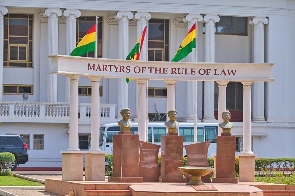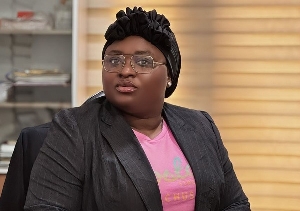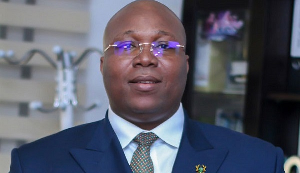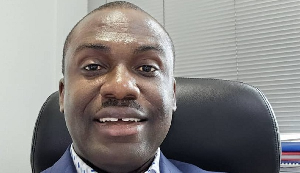Hearing of the 2020 Presidential Election Petition at the Supreme Court has been adjourned to Friday, February 5, 2021, with no specific business in sight.
The apex court panel of seven chaired by Chief Justice Kwasi Anin Yeboah took the decision to adjourn the case moments after engaging the lead lawyers in chambers.
This was after lawyers of the petitioner were obliged their request for an in-camera meeting with the bench together with lead counsel of the 1st and 2nd respondent.
Mr Tsikata’s request was premised on a potential witness the Petitioner intends to call.
It was the case of Mr. Tsikata, lead counsel for the petitioner that, there are health issues regarding a potential witness they would calling but the confidentiality of the health conditions of the said witness cannot be disclosed in open court.
Providing further grounds for that request, Mr. Tsikata said the potential witness has not filed any witness statement and the reason was due to his health conditions, hence the request for the in-Camera hearing.
Counsel for the Electoral Commission Justin Amenuvor told the court that they were informed this morning by counsel for the petitioner that there is an issue they would be raising in chambers regarding the witness.
The identity of the witness is yet to be known.
After engaging the lead counsel of the parties in chambers, the panel of seven chaired by Chief Justice adjourned the hearing to Friday without any indication of what is to happen.
Earlier, the apex court panel had dismissed a motion from the lawyers of the petitioner which sought an order of inspection of original documents of collation and summary sheets in the custody of the EC.
It was the ruling of the court that, the applicant has in possession of duplicate copies and also has not raised any questions regarding the authenticity of that documents.
The panel which also includes Justice Yaw Appau, Justice Samuel Marful-Sau, Justice Nii Ashie Kotey, Justice Nene Amegartcher, Justice Mariama Owusu, and Justice Gertrude Torkornor ruled that the applicant has not convinced the court to exercise its discretion in his favour.
General News of Wednesday, 3 February 2021
Source: kasapafmonline.com













